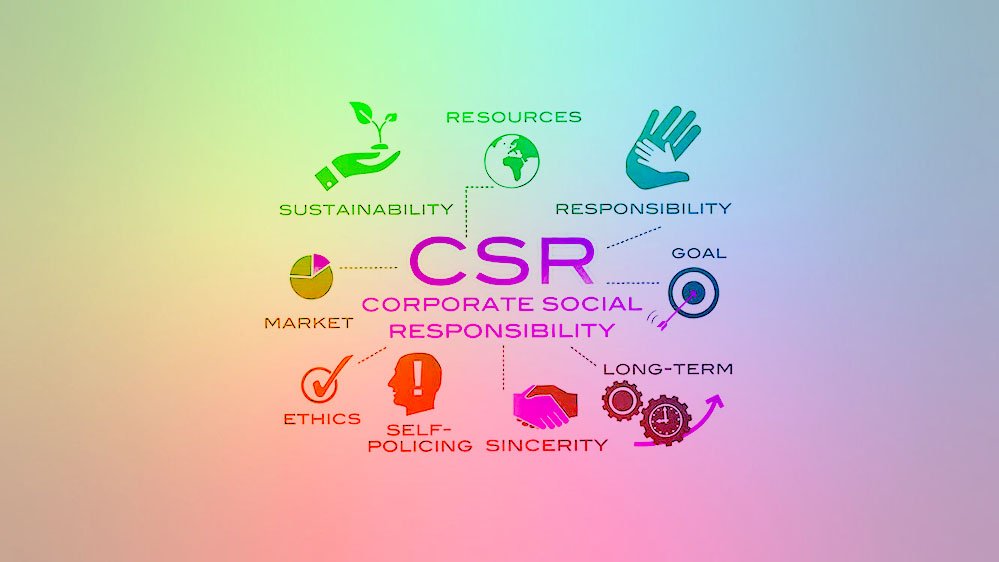Corporate Social Responsibility (CSR): A Key to Sustainable Business Success
In today's business landscape, Corporate Social Responsibility (CSR) has evolved from a mere buzzword to a strategic imperative. CSR is a self-regulating business model that ensures companies operate in ways that enhance society and the environment, rather than contributing negatively to them. This approach not only benefits society but also boosts a company's brand image and profitability.
What is Corporate Social Responsibility?
CSR involves a company's commitment to operate ethically and sustainably, considering its environmental and social impacts. It encompasses four main categories: environmental impacts, ethical responsibility, philanthropic endeavours, and financial responsibilities. By integrating these aspects into their operations, businesses can demonstrate accountability to their stakeholders and the public.
Benefits of Corporate Social Responsibility
Adopting CSR practices offers numerous benefits for businesses:
Improved Public Image: Engaging in CSR activities enhances a company's reputation and appeal to consumers. For instance, staff volunteering can significantly improve public perception.
Increased Brand Awareness: CSR initiatives often lead to increased brand recognition as news of ethical practices spreads.
Cost Savings: Implementing sustainable practices can reduce operational costs, such as using less packaging.
Competitive Advantage: Companies that prioritize CSR stand out from competitors, attracting customers who value ethical practices.
Employee Engagement: Employees are more likely to be motivated and engaged when working for a company with a strong CSR record.
Principles of Corporate Social Responsibility
To effectively implement CSR, companies should adhere to seven key principles:
Accountability: Acknowledge and address the company's impact on society and the environment.
Transparency: Regularly report CSR activities and outcomes to keep stakeholders informed.
Ethical Behavior: Operate with integrity in all business aspects.
Respect for Stakeholders' Interests: Consider the interests of employees, investors, customers, and the community.
Respect for the Rule of Law: Comply with legal regulations in all operational regions.
Respect for International Norms: Adopt best practices globally, even in regions with less stringent regulations.
Respect for Human Rights: Ensure business activities do not violate individual or community rights.
Examples of Successful CSR Initiatives
Several companies have set exemplary standards in CSR:
Microsoft focuses on employee volunteering, sustainability, and digital literacy, with significant donations to nonprofits.
Patagonia is renowned for its environmental initiatives, including donating Black Friday sales to environmental organizations and promoting sustainable materials.
Unilever has made significant strides in reducing environmental impact through its Sustainable Living Plan.
Critix, an American software design company, focuses on issues such as racial equality, ERG, LGBTQ+ alliance, carbon neutrality, and energy conservation.
Netflix focuses on issues such as DE&I, racial equality, accessibility, women's empowerment, disability rights, energy conservation, and carbon neutrality.
BMW Group focuses on issues such as AIDS, community development, education and sports development, DE&I, carbon neutrality, circular economy, and reducing CO2 emissions.
Chipotle Mexican Grill focuses on sustainability (including responsible sourcing and healthy living) and employee giving. The company takes food with integrity very seriously and donates to various non-profit causes supported by its team members.
Danone focuses on sustainability, nutrition and social innovation. The company's goals are to promote healthier eating habits, support the communities where its employees live and work, and reduce the environmental impact of its operations.
Toyota Connected focuses on sustainable mobility, environmental stewardship and using technology for social good. The company's goal is to create smarter, safer and more sustainable transportation solutions for everyone.
Teachable is centred around educational equity, supporting online educators, and empowering diverse voices in online learning and digital entrepreneurship.
Implementing CSR in Your Business
To integrate CSR into your business strategy:
Assess Your Impact: Evaluate your company's environmental and social footprint.
Set Clear Goals: Define measurable CSR objectives aligned with your business strengths.
Engage Stakeholders: Involve employees, customers, and the community in CSR initiatives.
Report Progress: Regularly communicate CSR achievements to stakeholders.
In conclusion, Corporate Social Responsibility (CSR) is no longer an optional add-on but a vital component of successful business operations. By embracing CSR, companies can not only contribute positively to society but also enhance their brand reputation and long-term sustainability. As consumers increasingly demand responsible practices, businesses that prioritize CSR will be better positioned to thrive in the competitive market.
Sources: Internet resources, Microsoft official website, Patagonia official website, Unilever official website, Citrix official website, Netflix official website, BMW official website, Chipotle official website, Danone official website, Toyota Connected official website, Teachable official website
* * * * *
Design Studio MZ+MM makes Social Procurement sensible.
Design Studio MZ+MM is a social enterprise (SEE Mark No. SEE 0114) based in Hong Kong, providing various types of graphic design services. Currently, the team is composed of hearing-impaired and hearing designers who practice disability inclusion, which is the primary reason for promoting "diversity, equity and inclusion" in corporate organizations. We support the United Nations Sustainable Development Goals SDGs: 10 “Reduced Inequalities” and 17 “Promote Partnerships for the Goals”.
In addition to providing job opportunities for diverse talents, this social enterprise also helps corporate clients implement advanced governance concepts. We also firmly believe that Design Studio MZ+MM is still the only social procurement solution practitioner and provider in Hong Kong, providing professional design services in the true sense of social procurement and adding multiple levels of added social value. To learn more about the vision and mission of this social enterprise, please click this link to jump to the Social Impact page.


